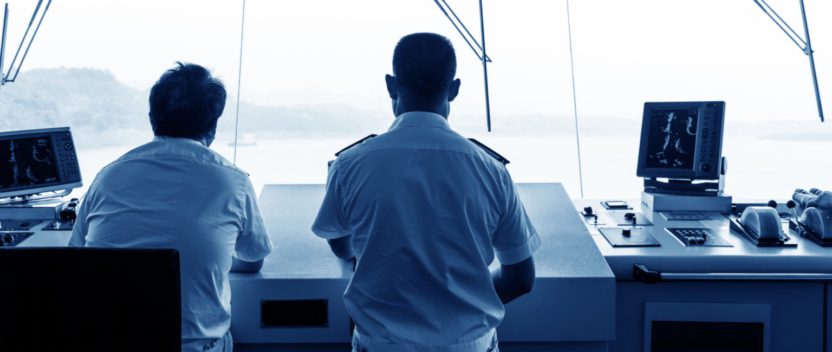Shippers flex their BICEPS over shipping’s GHG problem
This time last year, we published a blog pondering whether 2016 would be the start of shipping’s carbon age. Given that the industry had once again dodged the bullet of inclusion in the latest COP agreement there was, it seemed, an opportunity for the IMO to provide the kind of leadership that the industry wished to see.
Shipping was arguably fortunate to be left out of an agreement with so much good intent and so few teeth but the positive by-product was that COP21 shifted the conversation towards both seeking to limit climate change and countries making climate contributions, rather than taking responsibility for causing the problem.
This meant that IMO might have been able to take action on the basis of a shift in attitudes among developing and developed countries and create the conditions for some progress towards a market-based mechanism of the kind that some member states and NGOs were calling for.
As it turned out, the IMO was principally able to achieve progress on its existing programme of emissions data collection, with the hope that the European Union would take the opportunity to align its own data collection system, MRV with the IMO’s when the time was right.
This may yet happen but the signs do not look encouraging. Indeed the decision by MEPs to support the inclusion of shipping in the European Union Emissions Trading System (EU ETS) is a demonstration of how few friends the industry has in the Commission and European Parliament.
The decision is a perverse one too, given the failure of the EU ETS to deliver much by way of quantifiable results in other sectors, but it does reflect the fact that for European lawmakers, the authority of the IMO is there to be challenged.
The IMO has said previously that inclusion of shipping’s CO2 emissions in the EU ETS significantly risks undermining its efforts on a global level. IMO Secretary General Kitack Lim said last month that such a move “could easily be the first step on a slippery slope towards fragmentation of the regulatory regime that controls global shipping”.
The industry too has urged the European Union to drop its inclusion in the proposals adopted in mid-February, saying it risks distorting trade and international efforts to cut the sector’s emissions.
But at present, the draft reforms adopted by the EU Parliament for action post-2020 could result in shipping being included despite protests from the International Chamber of Shipping among others.
Trying to include thousands of small shipping companies, including thousands of companies not based in the EU, into a system designed for major EU power-generating companies, steel and cement producers will only complicate the reform needed, the ICS argued.
Environmental campaigners, meanwhile, welcomed the Parliament’s stance and will doubtless be celebrating something of a coup by managing to ally with those with the power to make the change – the shipowners’ customers.
In two letters, an association of shippers and cargo owners called on the Parliament, Council and Commission to include shipping in the EU ETS under a special fund.
This backed the Parliament’s own environment committee proposal to regulate the sector via a Maritime Climate Fund from 2023 “if IMO does not deliver a global measure to address shipping GHG emissions”.
The Clean Shipping Index, which represents 29 major global shippers, said that action by the industry alone would be insufficient and that first mover action at state or regional level has in the past helped trigger action at a wider international level.
In its letter, a shipper coalition wittily known as BICEPS and including AB InBev, AkzoNobel, DSM, Farm Frites, FrieslandCampina, Huntsman, IOI Loders Croklaan, Lamb Weston/Meijer, and Vion Food Group, said it was time to “boost actions at international level to reduce ship CO2” and issued a similar call for action if the IMO “does not deliver a global measure to address shipping GHG emissions”.
So far, so much doom and gloom and the industry is right to be worried. In other industries, when your customers tell you there is a problem, it’s often too late to act or manage the fall-out. BICEPS and the CSI are not the cargo sector in toto but they do represent some big and potentially embarrassing voices.
Perhaps though, we shouldn’t panic just yet about the ability of IMO to regulate international shipping. As noted above, at the last MEPC meeting, the committee succeeded in adopting mandatory requirements to collect the data that will enable the organisation to understand how to design a workable MBM.
It also approved a roadmap for reducing GHG emissions which foresees an initial reduction strategy to be adopted as early as next year. The roadmap contains a list of actions, including further GHG studies and intersessional work that aligns with the MEPC’s three-step approach to ship energy efficiency improvements.
This the IMO believes, creates a way forward to the adoption of a revised strategy to include further short, medium and long-term measures in 2023. The choice of dates by the NGOs and shippers thus becomes clearer – the potential mismatch is if the IMO delivers the strategy but not the reduction mechanism.
So it seems from only the very briefest of readings that the EU Parliament is being urged to do something that is scheduled to happen already. Or rather, that those who wish to see action are making sure they know where the big stick is in case they need to use it.
The experience of ECAs and MRV means the IMO will know that the EU is not bluffing. Trouble is, the EU is far from being the majority of shipping supply or demand. Trouble too that we appear to live in at a time when agreements and treaties are subject to change at the whim of the incoming politicians.
As a bureaucracy, the EU Commission is much less subject to those forces but, in a year of major European elections, its Parliament and MEPs will be forced to weigh and take notice of popular opinion like never before. For the IMO, other unelected, some would say unaccountable diplomats must also recognise that they are low on bullets – however big the target.


